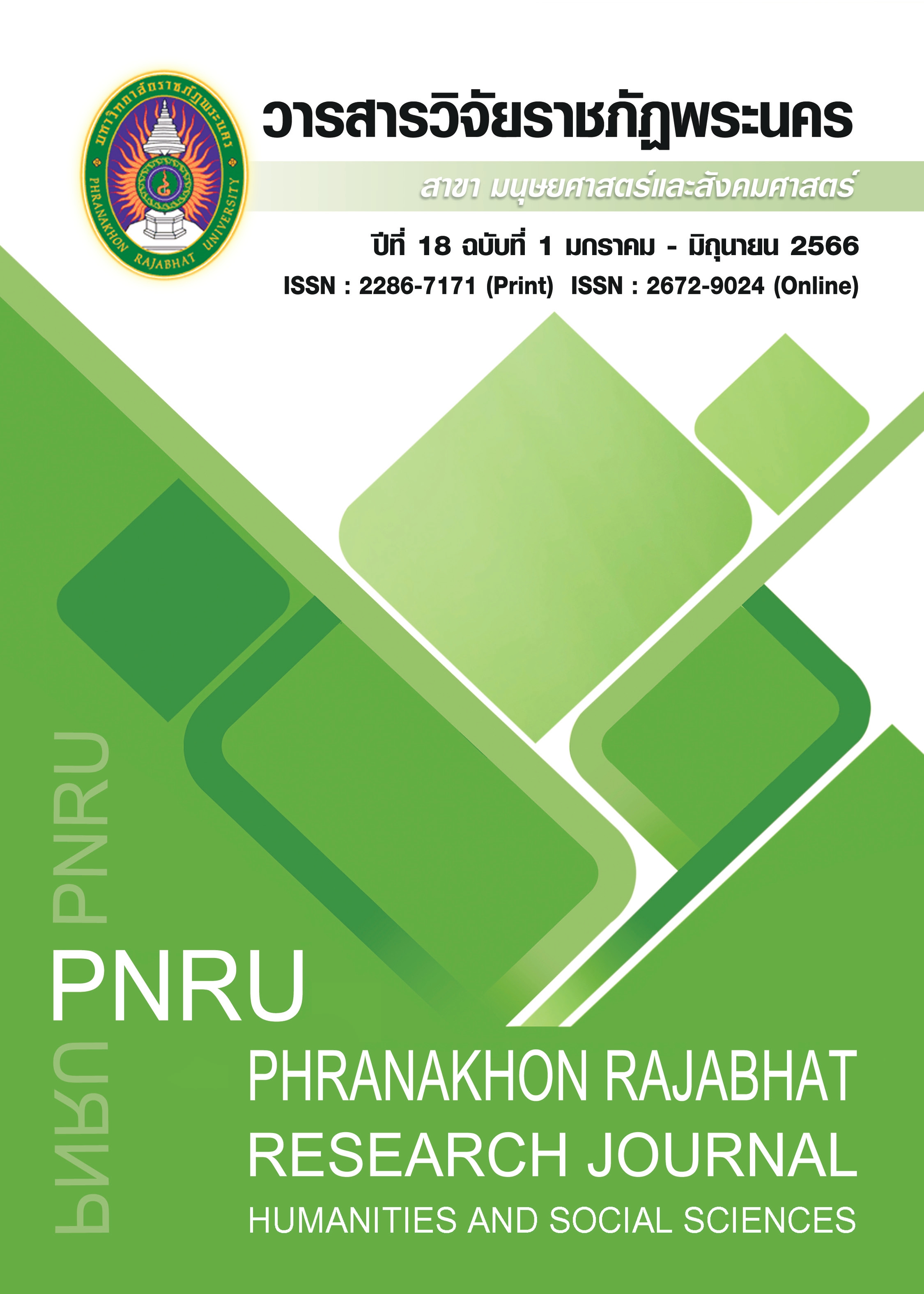THE STUDY OF PRIMARY BHUTANESE TEACHERS’ PERCEPTIONS AND PRACTICES TOWARDS THE USE OF TECHNOLOGY IN TEACHING
Main Article Content
Abstract
The objective of this study was to examine the primary Bhutanese teachers’ perceptions and practices toward the use of technology in teaching. Over the course of a month, 115 teachers from 13 primary schools in Tsirang district participated in the study. The quantitative data was gathered using the 23- item survey questionnaires. To collect qualitative information, sparingly scheduled semi-structured online interview sessions were used. Further to reinforce the study, descriptive and thematic analyses were carried out to assess the data.
The findings revealed that the primary teachers of Tsirang district were in favor of incorporating ICT into their daily teachings. The Likert scale overall mean, which was 3.66 out of 5 was classified as "Agree" to all items on the questionnaire. The results of the semi-structured online interview showed how strongly they felt using ICT in their daily teachings was important. Thus, the study revealed that teachers' positive attitudes toward incorporating ICT into their daily teachings mattered a lot for the process of lifelong teaching and learning based on the data mentioned above. However, district-level officials and supervisors needed to initiate and provide teachers with enough ICT resources and professional development programs on emerging technology.
Article Details

This work is licensed under a Creative Commons Attribution-NonCommercial-NoDerivatives 4.0 International License.
Each publish articles were copyright by Phranakorn Rajabhat University
Any contents which appeared in each articles in the journal were authors personal opinion. It did not relate to Phranakorn Rajabhat University and other instructors in the university. Each authors would take responsibility on their articles. If there are any mistake, the authors will take responsibility themselves
References
Akram, H., Aslam, S., Saleem, A. & Parveen, K. (2021). The challenges of online teaching in COVID-19 pandemic: a case study of public universities in Karachi, Pakistan.Journal of Information Technology Education: Research, 20, 263–282. doi: 10.28945/4784.
Akram, H., Abdelrady, A H., Al-Adwan, A. S. & Ramzan, M. (2022). Teachers’ perceptions of technology integration in teaching-learning practices: A systematic review. Front Psychol, 13, 920317.
Ali, G., Haolader, F. A., & Muhammad, K. (2013). The Role of ICT to Make Teaching-Learning Effective in Higher Institutions of Learning in Uganda. International Journal of Innovative Research in Science, Engineering and Technology, 2(8), 4061-4073.
Alkamel, M.A.A. & Chouthaiwale, S.S. (2018). The use of ICT tools in English language teaching and learning: A literature review. Veda’s Journal of English Language and literature, 5(2), 29-33.
Anthony, A., Ghavifekr, S., Kunjappan, T., & Ramasamy,L. (2015). Teaching and Learning with ICT Tools: Issues and Challenges from Teachers’ Perceptions. Faculty of Education, University of Malay, Malaysia. Malaysian Online Journal of Educational Technology, 4(2), 38-57.
Bariu, T. N. (2020). Status of ICT Infrastructure Used in Teaching and Learning in Secondary Schools in Meru County, Kenya. European Journal of Interactive Multimedia and Education, 1(1), e02002. https://doi.org/10.30935/ejimed/8283
Bayram, G. E. (2016). Teachers' and students' perspectives towards the use of ICT in a Turkish school for pupils with hearing impairment. University of Warwick https://ethos.bl.uk/OrderDetails.do?uin=uk.bl.ethos.720467
Bentahar, O., & Cameron, R. (2015). Design and implementation of a mixed method research study in project management. Electronic Journal of Business Research Methods, 13(1), 3-15.
Choeda, Penjor, T., Dukpa, D., & Zander, P. (2016). The State of Integration of the Virtual Learning Environment and ICT into pedagogy of the Royal University of Bhutan: A descriptive study. International Journal of Education and Development using information and Communication Technology (IJEDICT), 12(1), 71-88.
Dastjerdi, N.B. (2016). Analyzing the Opportunities and Challenges to use of Information and Communication Technology Tools in Teaching-Learning Process. University of Isfahan, Isfahan, Iran.
Dorji, T. (2021). Integration of ICT in Bhutanese Schools, Common Obstacles, and The Way Forward. The Druk Journal, 6(1), 49-54.
Ertmer, P. A. (2005). Teacher pedagogical beliefs: The final frontier in our quest for technology integration.
Gebremedhin, M.H., & Fenta, A. A. (2015). Assessing Teachers’ Perception on Integrating ICT in Teaching-Learning Process: The Case of Adwa College. Institute of Geo-Information and Earth Observation Science. Mekelle University, Mekele, Ethiopia.
Gyeltshen, K., & Dorji, R. (2020). Higher education in Bhutan policy, current status, And challenges. Referee Work Entry Higher Education in Bhutan.
Gyeltshen, L. (2012). Principals’ Technology Leadership Behavior and Teachers’ Use of Information and Communication Technology (ICT) in Bhutan.
Hamilton, E. R., Rosenberg, J. M., & Akcaoglu, M. (2016). The substitution augmentation modification redefinition (SAMR) model: A critical review and suggestions for its use. TechTrends, 60(5), 433–441.
Indrasiene, V., Dromantiene, L., & Bielskyte-Simanaviciene, E. (2015). Use of information and communication technology in the study process: Teachers' experience. Social lines Technologijos, 5(1),7–21.
Kim, C., Kim, M., Lee, C., Spector, J. M., & DeMeester, K. (2013). Teacher beliefs and technology integration. Teaching and Teacher Education, 28, 76-85.
Ministry of Education, Bhutan. (2014). Isherig Education ICT Master Plan 2014-2018, Ministry of Education.
Ministry of Education, Bhutan. (2019). Isherig Education ICT Master Plan 2019-2023, Ministry of Education.
Office of Educational Technology. (2016). Every student succeeds act: Supporting teacher’s in creating Future Ready classrooms. Retrieved from: https://tech.ed.gov/essay
Onalan, K., & Kurt, G. (2020). Exploring Turkish EFL teachers’ perceptions of the factors affecting technology integration: A case study. Dil ve Dilbilimi Çalışmaları Dergisi, 16(2), 626 - 646. https://doi.org/10.17263/jlls.759264
Rwanda Vision, 2020. (2017). Ministry of finance and economic planning, republic of Rwanda. Available at http://www.nur.ac.rw/IMG/pdf/Vision_2020.
UNESCO. (2015). ICT in Education in Sub-Saharan Africa, A comparative analysis of basic e - readiness in schools. (25).


